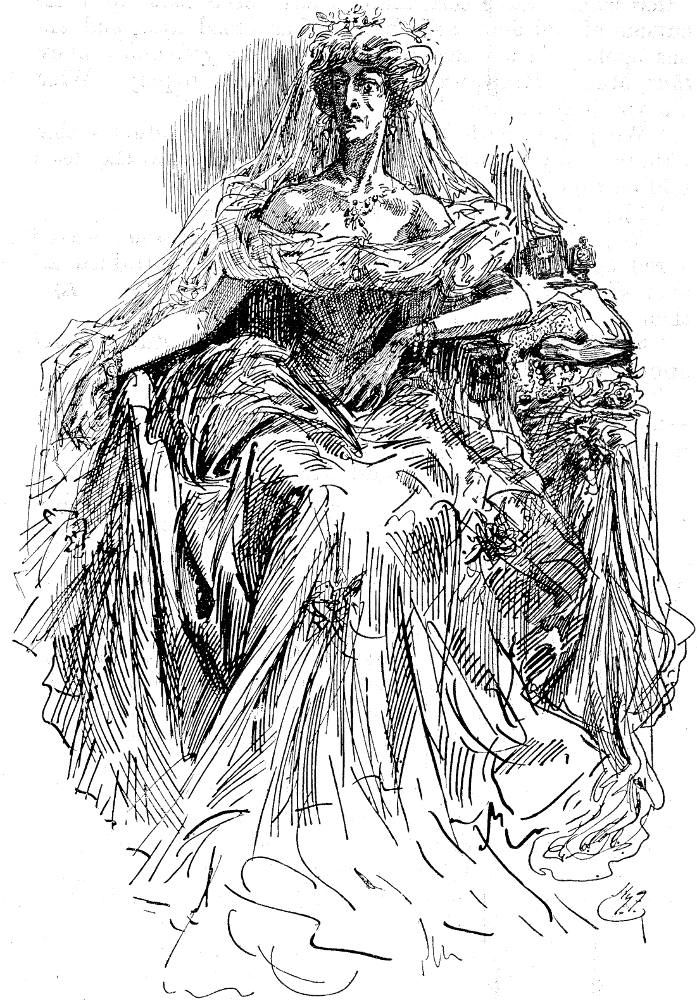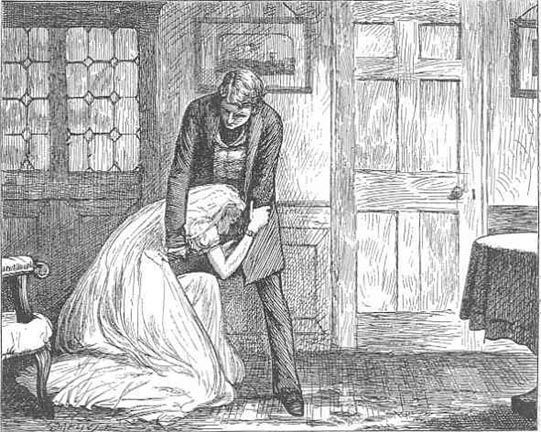Time is cruelty for Miss Havisham, the eccentric owner of Satis House in Charles Dickens’ fine novel Great Expectations. The progression of time drives her mad; to protect what little sanity she has left she must stop time’s progression. It’s impossible to do so. Time is powerful and in its willful determination to do as God dictates, Miss Havisham leads a fantasy life where she protects herself from the hurt of abandonment.
Wronged by her fiancé, Miss Havisham locks her doors, leaves the wedding feast on the table, and commands that all her clocks be stopped. Time is not permitted to work. Yet there is something in the saying that time is the great healer. It allows wounds to scab over and scar. The memory of the hurt remains, but the pain is gone. Time heals those wounds, but when Miss Havisham stops time for herself, she stops the healing process. There is no progression for Miss Havisham. Instead, she locks herself into the memory of the wrong done her, scraping off the healing scab every single day in order to feel the pain afresh.
 |
| Source |
When time is not allowed to work its healing touch, the person who stops it is never the only person affected. Miss Havisham closes herself off from the outside world and repeats that memory of that fateful day again and again, clothed in her wedding dress. When she brings an innocent little girl into her house to raise as her own child, of course, this child Estella is doomed. Estella too is caught in Miss Havisham’s pain, and so the wound Miss Havisham suffers transfers to an innocent child; a child raised for the deliberate destruction and heartbreak of men.
How is this child trained to be so cruel? Miss Havisham brings in a boy, a young, pure boy named Pip whose heart is captured by Estella’s cool charm. It delights Miss Havisham’s warped heart to watch Pip and Estella play together, and to hear that Pip finds her entrancing despite her arrogance. She tells him to love Estella with his whole heart and in his innocence Pip can do nothing else. Where first there was only one individual trapped in the world without time, now there are three.
 |
| Source |
What Miss Havisham never counted on was that she only ever fooled herself. Time cannot be stopped, no matter how hard a person tries. It marches on, seconds turning into minutes, minutes into hours, hours into days, and days into years whether we want them to or not. Miss Havisham cannot see it, but just as Pip and Estella grow up, so too does she grow old. Her dress hangs in tatters on her emaciated frame and streaks of white permeate her once luxurious hair. Where once she walked with Pip on a tour of the house, showing him the dining hall with the long since rotten wedding feast, now she must be wheeled in a chair, wheezing and decrepit through the halls.
It is only when Estella agrees to marry a brutish man and Pip confronts Miss Havisham with all her wrongdoing does she realize her mistake. She wanted to make a strong woman out of Estella but only managed to mold a heart of ice. She poured all of her malice and brokenness into an innocent child and birthed a man-eater. Her body failing her and her heart quaking, Miss Havisham yearns to retract her choices, but she cannot. Because time exists and there is no undoing its march.
 |
| Source |
There is no happy ending for Miss Havisham. She wrung every ounce of happiness out of her soul, killing herself every single day by refusing to take each day as new. After all, God's mercies are made new every morning. Pain has no right to live forever in the human heart. When it does, it warps and twists that person into a shadow of who they were and who they might have been. While Pip and Estella rebuild their lives, finding a semblance of happiness despite their encounter with Miss Havisham, she is left with nothing, only the realization that she wronged two individuals that she had grown to love.
Time must be allowed to have its day. Grief cannot last forever; it must be allowed to heal. Pain turns to resentment which turns to bitterness and then to hatred. Unresolved hurt always leads down a path of vengeance. Miss Havisham dedicated her life to reliving her past, to growing her hatred, and to plotting vengeance not just against the man who wronged her, but against all men. It was hurt unchecked, hurt unhealed. That’s why the wisest man of all once said, “And when you stand praying, if you hold anything against anyone, forgive them, so that your Father in heaven may forgive you your sins.”
One lesson of Great Expectations is to never allow emotional and spiritual wounds to fester. Root them out, deal with them, and then let them heal. Time works a healing balm on the spirit, reviving the soul and bringing with it new life. It’s a shame that Miss Havisham never gave time the chance to work.


A true lesson indeed from Miss Havisham!
ReplyDeleteThis book is one of Dickens' best works; he's less exaggerating here.
I agree. I think that might why I like it so much. For him, it's fairly concise and just tells a really solid story. I look at some of his other work and it's absolutely daunting!
Delete